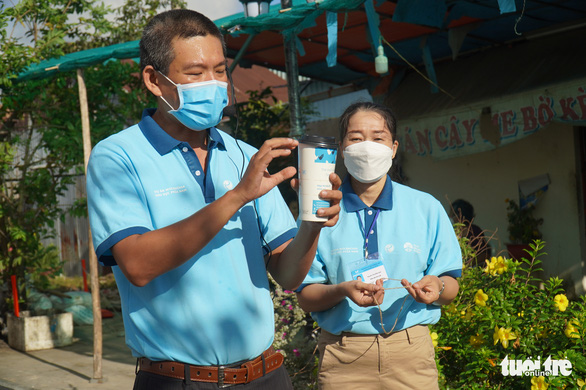A plan to release mosquito eggs carrying natural bacteria called Wolbachi was launched in Vietnam’s Mekong Delta province of Tien Giang on Friday in an effort to help control and prevent dengue fever.
As part of the World Mosquito Program (WMP)’s Wolbachia Project in southern Vietnam, the plan has been introduced by the Ho Chi Minh City Pasteur Institute and the WMP, in conjunction with Tien Giang’s health authorities, with an aim to drive back dengue spread by Aedes aegypti mosquitoes.
Accordingly, the release of such mosquito eggs will be conducted in eight wards in the province’s My Tho City for three consecutive months.
An endosymbiotic bacterium, Wolbachia, once infected, has been proved to shorten the lifespan of Aedes aegypti mosquitoes while partially or entirely blocking them from contracting the dengue virus, according to research scientists at Australia’s Monash University.
Wolbachia is a natural pathogen to about 60 percent of insects, including common ones like drosophila, butterfly and dragonfly, said Dr. Nguyen Vy Thuong, deputy director of the Ho Chi Minh City Pasteur Institute.
The method here is to make Aedes aegypti mosquitoes infected with Wolbachia to prevent them from transmitting dengue fever, yellow fever, Zika, chikungunya, Dr. Thuong said.
Under the program, Wolbachia-carrying mosquito eggs are kept in capsules, with each containing about 400 eggs, and these capsules will be put inside water containers arranged in 2,636 locations in residential areas in the wards.
After the eggs hatch out, infected mosquitos will escape into the environment and they will eventually mate with local mosquito populations.
In this way, Wolbachia-infected Aedes aegypti mosquitoes will be multiplied over time and thereby help put the dengue fever under control.
Dengue fever patients have symptoms including fever, headache, muscle and joint pain and a characteristic skin rash similar to measles, according to the World Health Organization.
Numbers of dengue fever patients and deaths in Tien Giang have decreased over recent years, but the situation is still complicated, with new cases detected all year round, said Nguyen Van Muoi, deputy chairman of the provincial administration.
“In 2019, the province reported more than 6,000 dengue fever cases and three deaths. In 2020, there were 3,200 cases and last year saw 1,600 infections and one fatality,” Muoi said, adding that he hoped the aforementioned program will help drive back the disease effectively.
The same method was carried out in Binh Duong Province, in southeastern Vietnam, on Thursday, with Wolbachia-carrying mosquito eggs allocated to 2,800 locations across the province’s Thu Dau Mot City.
In 2017, a similar program was conducted in Nha Trang City, in the south-central Khanh Hoa Province, as part of the Monash University-funded Eliminate Dengue Program in Vietnam.
Around 90,000 cases of dengue fever are recorded in Vietnam every year on average, with 70 percent in its southern region, according to the Ho Chi Minh City Pasteur Institute.
Like us on Facebook or follow us on Twitter to get the latest news about Vietnam!




















































